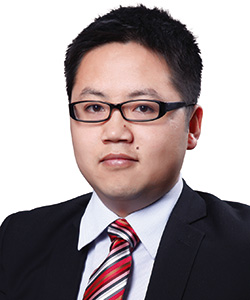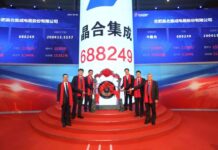What legal issues will the SSE focus on in reviewing applications?
The Shanghai Stock Exchange (SSE) Star Market has attracted a number of innovation-oriented scientific and technological enterprises since its launch. However, when the authors render services to enterprises that plan to go public on the Star Market, we notice that most of them are in need of in-depth understanding of relevant legal issues that require their attention prior to their application.

Partner
AnJie Law Firm
As a result, many “low-level” legal problems emerged during the review and inquiry of the SSE. For this reason, based on the conditions for listing on the Star Market and the SSE’s interview of more than 20 listed enterprises and their feedback, the authors have sorted out and summarized the major issues that require attention of the enterprises seeking listing.
From our practical experience, it is not difficult for enterprises seeking to go public on the Star Market to meet the “compulsory requirements” (e.g., registered capital, market value, financial indexes, etc.) in general. They tend to overlook the “fuzzy requirements” of “independence and stability of business management and going-concern ability”, which are exactly the focus of the SSE in reviewing applications for listing.
Independence requirements
These requirements mainly include the following: (1) the assets of the issuer are integral; (2) the business, personnel, finance and organization of the issuer are independent; (3) the issuer is not engaged in any horizontal competition with its controlling shareholders, actual controllers or other enterprises under its control, which would have a material adverse impact on the issuer; and (4) the issuer is not engaged in any related-party transaction that would materially impair the independence of the issuer, or that is obviously unfair.

Associate
AnJie Law Firm
In terms of asset integrity, as land and premises are high in value and have a major impact on a company, the SSE pays special attention to land and premises of the applicants. Nearly 80% of the applicants are asked about: (1) the ownership of the land and premises; (2) whether the land and premises are obtained and used in a legal way; (3) whether there is any major dispute over the land and premises; and (4) whether the land and premises would affect the asset integrity of the issuer.
In terms of independence of business, personnel, finance and organization, the feedback of the SSE on inquiry is mainly about: (1) whether the issuer shares the R&D personnel and system with its affiliates; and (2) whether the independence of the issuer is affected by the connection between the affiliates and the issuer in historical development, assets, personnel, main businesses, finance and organization.
In terms of related-party transactions, the SSE mainly assesses the transactions from the angles of the fairness and necessity of the pricing of the transaction, and pays attention to: (1) whether there is tunnelling; and (2) whether the transaction constitutes issuer’s dependence on its affiliates.
In terms of horizontal competition, the SSE focuses on: (1) whether there is horizontal competition or potential horizontal competition between the issuer and its affiliates; and (2) if there is horizontal competition, whether there is unfair competition, tunnelling, or relinquishment of business opportunities.
Stability requirements
Stability requirements mainly refer to whether the major businesses, control, management, and core technical personnel of the issuer are stable.
As for the focuses of review, first, it is self-evident that the actual controller plays a significant role in the business operation of the issuer. Nearly 70% of SSE feedback on its review of applications for listing is related to the identification of the actual controller. The SSE pays particular attention to: (1) the reasons and basis for identification of the actual controller; (2) how the actual controller exercises control; and (3) whether the issuer utilizes identification of the actual controller to avoid the stock issuing conditions and regulations.
Second, for enterprises listed on the Star Market, given their attribute as innovation-oriented scientific and technological enterprises, the SSE asks more about their core technical personnel than about identification of actual controllers. The SSE generally focuses on: (1) the basis for identification of core technical personnel; and (2) the contribution of the core technical personnel to development of related intellectual property.
Finally, the SSE, based on the identification of the actual controllers and core technical personnel, will pay further attention to: (1) stability of related personnel; and (2) whether there is any material adverse change during the reporting period.
Going-concern requirements
The going-concern requirements mainly refer to the issuer being free of any of the following matters that have a material adverse impact on its going-concern: (1) major dispute over the ownership of major assets, core technology, and trademark, among others; (2) significant insolvency risk; and (3) existing or potential significant changes to the business environment.
The life of an innovation-oriented scientific and technological enterprise lies in its technology. Therefore, the sustainability of its core technology is also a major concern of the SSE, which focuses on: (1) the R&D mechanism of the issuer; (2) sources of core technologies; (3) whether the major achievements of the R&D personnel are on-duty inventions; (4) whether there is a potential dispute over intellectual property; (5) whether the core technology of the issuer is cutting edge; and (6) whether the core technology or product has the risk of being replaced by other technologies on the international and domestic markets, or becoming obsolete.
The authors hope this article will help enterprises that seek a listing on the Star Market to gain a deeper knowledge of SSE thinking in reviewing their application for listing. From years of practical experience, the authors find that many enterprises attach more importance to business development than to legal compliance risks in the process of management. Therefore, we suggest that enterprises planning to go public should seek the professional opinions of investment banks and lawyers and make preparation in advance, saving both cost and time for meeting the rules for going public, and increasing the chance of a successful listing.
Lu Qunwei is a partner at AnJie Law Firm. He can be contacted on +86 10 8567 5916, or by e-mail at luqunwei@anjielaw.com. Wang Dong is an associate at AnJie Law Firm. He can be contacted on +86 10 8531 1404, or by e-mail at dongwang@anjielaw.com.





















